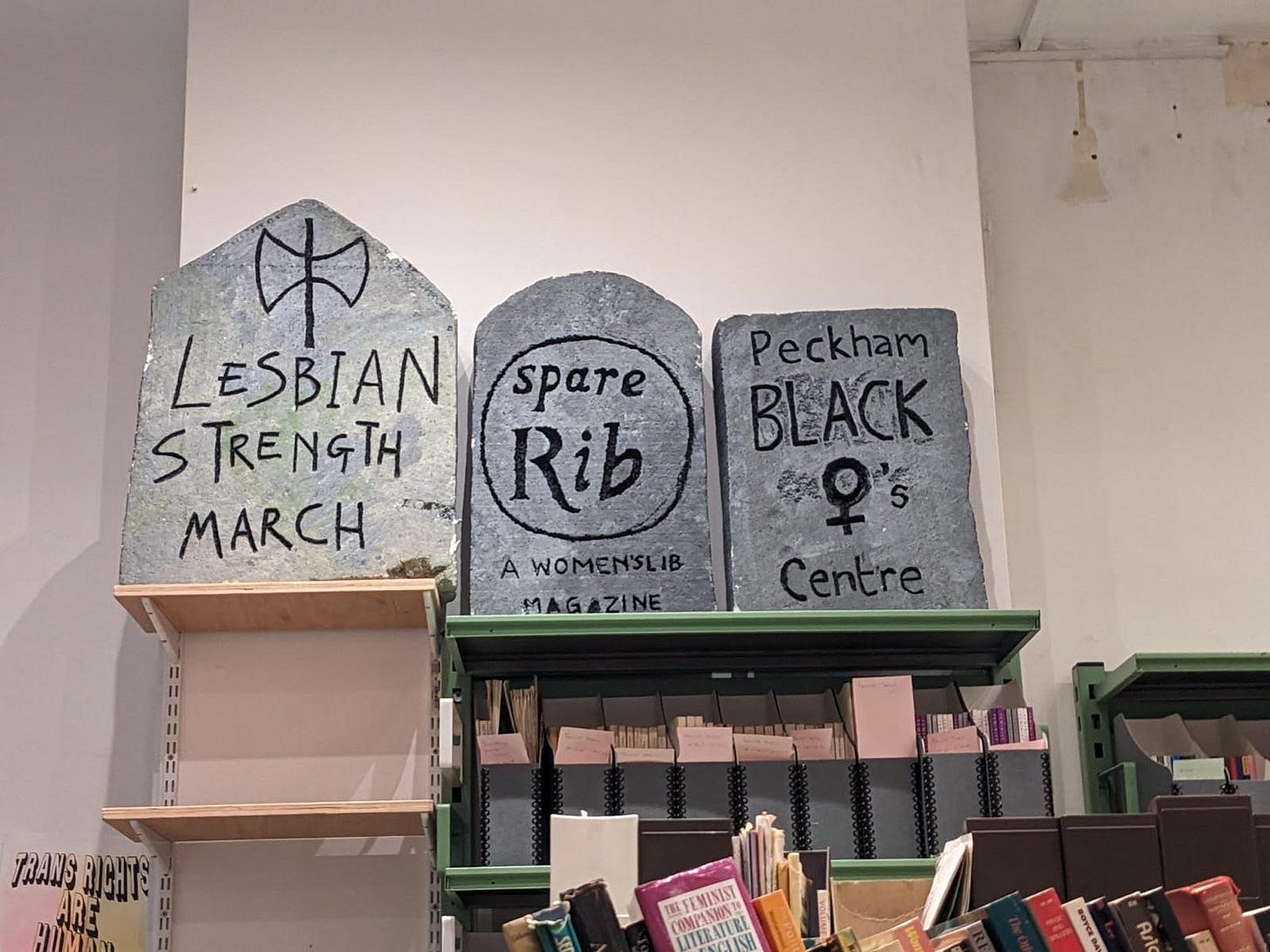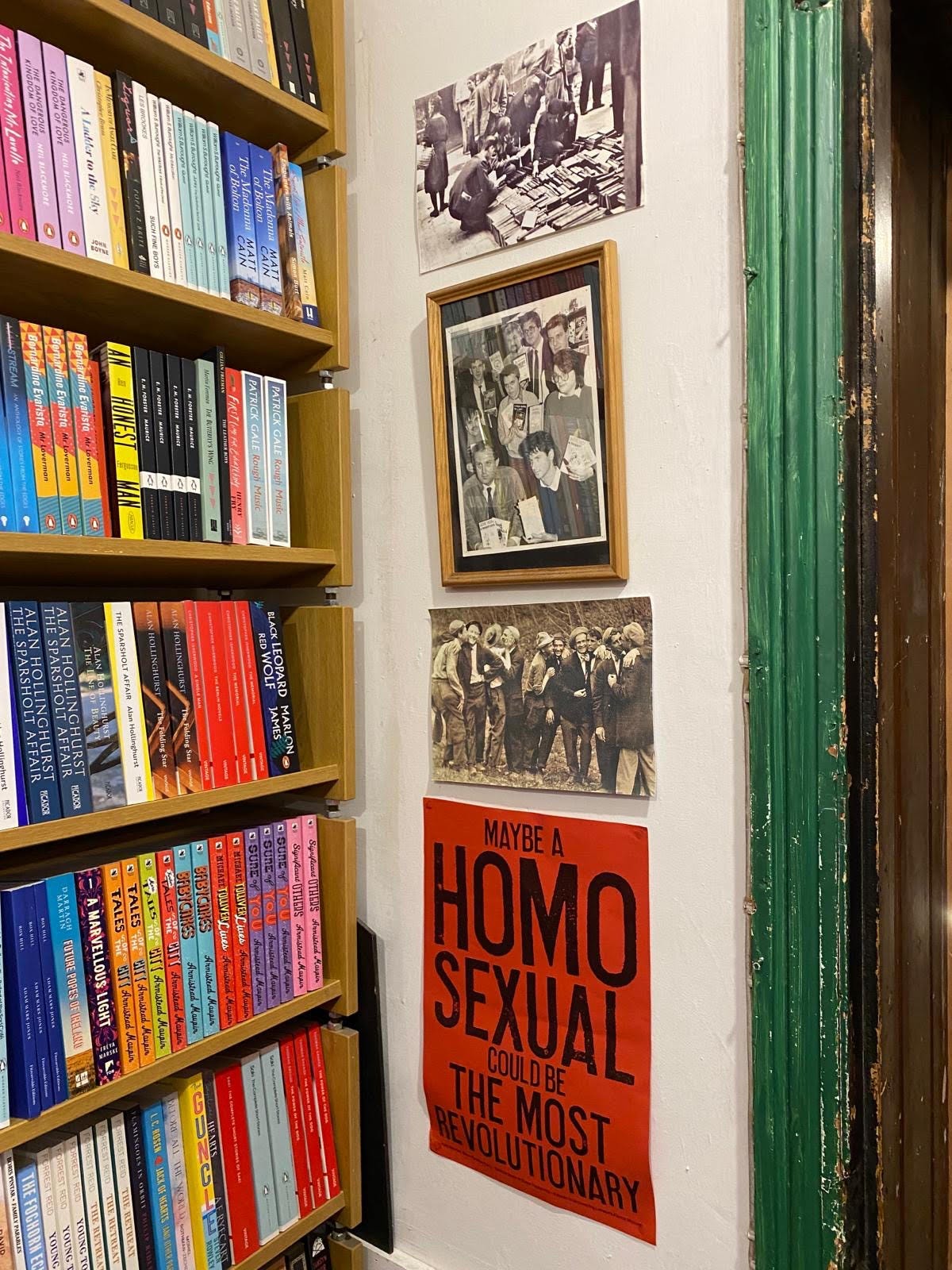A Killjoy Diary
The title of this post is a reference to what I hope to be doing in writing this newsletter. I am thinking of it as a killjoy diary or a killjoy’s diary, a place to express my thoughts and feelings, to respond to what comes up, and to share the work of building community. I will reflect back on what led me to write The Feminist Killjoy Handbook and A Complainer’s Handbook (the latter is still in the process of coming out, a multi-actor collaboration as ever). I will share some new research on how what is called “gender critical” feminism (but is better described as sex realist feminism) has participated in the creation of a hostile environment that is leading many people to leave, or disengage, from their workplaces. We do not hear that story much in the mainstream press because this hostile environment is what we are in.
Why a diary?
I hope to write shorter, snappier texts.
For me: this is a challenge.
A diary as a travel log.
I have been travelling with feminists killjoys for some time, charting their journey. Charting the journey is the title of a Black British feminist collection published by Sheba Feminist Press in 1988. It includes an interview between Audre Lorde, Gail Lewis and Pratibha Parmar. Lorde comments on the title. She says, “Charting the Journey, that’s what you mean, isn’t it? How we do we get from there to here? What you chart is already where you’ve been. But where we are going, there is no chart yet. We are brave and daring and we are looking ahead.”
A story can be how we got here. It can where we are going.
I loved writing The Feminist Killjoy Handbook, going over an old path, noticing what I had noticed before. I learnt so much from the experience. And I learnt from my companions in the journey, especially from Ama Ata Aidoo’s Our Sister Killjoy, fist published in 1977, the first book to give a killjoy a political voice.
A feminist voice, sister.
So many debts. A joyous killjoy debt.
A debt can be a hand: how you were pulled out from a shattering experience.
The harder the work, the more we need something (or someone) to hold onto.
That’s why, a handbook. A handbook as a hand as a handle.
When I am asked why a handbook, I mostly think of where: where I ended up, where I shared the work. I am no longer working at a university, even if I am still a killjoy at work, working with those of you who are working on them.
Yes: the answer to why is where.
These handbooks are a way to share the work somewhere else. I loved speaking somewhere else, in independent book stores and feminist libraries, meeting people in those spaces, less weighed down by history and hierarchy than lecture theatres, moving tables and chairs to give each other room.
Wiggle room, perhaps.
I loved being surrounded by feminist and queer walls like these:
These are from The Feminist Library and Gay’s the Word.
Yes: so much better to be surrounded by a history of feminist and queer activism!
Walls can be wise. Or, we can choose our walls wisely.
But, I could also feel it in the room: the fear of what was going on, of what else was coming; the hostility directed towards trans people and queer people, towards Black and brown people willing to critique whiteness rather than aim for proximity to it, towards so many of our bodies of work; critical race theory, queer theory, feminist theories of sex.
The violence can lead us to enter a room. It can follow us into the room.
Clare Hemmings in her review of Judith Butler’s recent book, Who’s Afraid of Gender? describes this hostile environment so very well. She states that the UK has become “a site of virulent anti-trans, as well as racist antimigrant, feeling and policy making, and those of us working there to preserve a public space where critical accounts of sex, gender, and race can be expressed without lawsuits, defamation, and harassment are depressed and exhausted.”
So many of us now have so much more work to do in order to be able to do our work - critical work on “sex, gender and race.” That exhausting labour has been made necessary in part because of targeted campaigns led by academics so committed to free speech that they are willing to use any methods available to them to stop those of us who critique their work from critiquing their work.
I rather suspect the point of these campaigns is to exhaust our capacities.
So yes, we need each other, to become each other’s resources.
It can be a question of where we end up.
Of where we are, now.
The genocide in Gaza.
I think of Sarah Ihmoud’s question: “What does it mean to practice feminism in a moment of bearing witness to genocide?”
Sarah Ihmoud writes of speaking through grief, sharing exchanges with Mona Ameen, a young Palestinian scholar in Gaza. She asks Mona if she has any messages for women and feminists around the world. Mona answers “Keep posting and posting and posting about us … keep us in your prayers.” Ihmoud writes “to practice feminism in this moment is to hold each other through the vast darkness of our grief, to walk with each other hand in hand, to bear witness to landscapes of death, and, as Mona urges us, to tell the truth.”
A truth: it can be how walk with each other, hold each other; witnessing, telling.
A truth: it can be what we have to keep telling.
That’s the point: what we point to, the violence, to object to it, name it, explain it, demonstrate against it.
Demand an end to it.
Let each fragment speak.
Still we keep the question alive: how best to communicate? To make the point? To keep making it?
Over the past months, I have been doing what I had been doing before, what I had since the beginning of the pandemic: sharing my work in the form of virtual lectures. But I began to feel: that genre was no longer working. It was too hard to speak into a void, however much I knew you were there. Or maybe I realised that I could not change the material, speaking of genocide, without changing form.
Hence a diary.
Another way for sharing work and words, what we send out, comes back in a different way.
In A Complainer’s Handbook, I reflected on what it meant to be writing about hostile environments in them.
This is from the draft introduction:
“I have been writing this handbook in an increasingly hostile environment, with more and more messages sent out that say to some people: you do not belong here; you have taken what is ours. I have been writing whilst those of us who use the word queer to describe ourselves or our projects are called groomers and paedophiles. I have been writing whilst many people in government and media have been campaigning to dismantle the rights of trans people, with report after report, article after article, presenting trans people as a problem needing to be managed. I have been writing whilst politicians represent the reform of the welfare system to make it harder to access benefits “a moral mission,” labelling those who need benefits, including disabled people, the unemployed and asylum seekers, fraudsters. I have been writing whilst Israel has been conducting a genocide in Gaza and when those of us who are protesting that genocide, who are fighting for a free Palestine, are labelled extremists.”
I also wrote:
“At times, it has been hard to pick up my pen and to keep writing through all of this. But I know by writing through hostile environments, I write against them. Being a feminist ear means being willing to take it in, as much as we can, to digest these messages in order to contest them.”
A killjoy diary as a feminist ear. Sharing what I hear.




Happy to see you posting, lfg!
Thank you—my students wrote their manifestos last week!